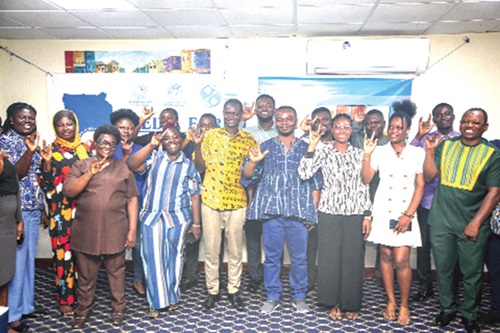Over 90 per cent of deaf people are born into households where families do not understand sign language.
The situation creates a language gap right from birth, leading to suspicion, alienation and psychological challenges.
A Senior Lecturer at the University of Education, Winneba (UEW), Daniel Fobi, who disclosed this, explained that the lack of communication access denied the deaf their sign language rights, which in turn contributed to a denial of basic human rights.
Mr Fobi, who is also the Coordinator for Deaf Education at UEW, therefore, emphasised the need for sign language to be recognised and respected as a human right.
He urged the media to advocate for its inclusion and also raise awareness among relevant stakeholders, policymakers and the public.
Forum
Mr Fobi was speaking at a media forum as part of activities marking the 2025 International Week of the Deaf, organised by the Ghana National Association of the Deaf (GNAD) in Accra recently.
The forum was to build a strong and strategic partnership with the media to draw attention to the need for inclusivity in communication and the role of the media in ensuring access to information for all.
The event was held on the theme, “No Human Rights Without Sign Language Rights: What Role Will the Ghanaian Media Play in Ensuring Access to Information and Inclusion?”
According to the census figures, about one per cent of the country’s population is deaf.
Addressing the forum, President of GNAD, Matthew Kubacha, reiterated that deaf people had the same right as all citizens to access the information the media disseminates.
“We know we can’t do this alone. We need the media to support us so deaf people can have access to information,” he said.
“This is a big challenge that the deaf community faces all the time, and without the media’s support, we are always left behind,” he added.
The Executive Director of GNAD, Juventus Duorinaah, emphasised the crucial role of the media in promoting inclusion and equality for persons who were deaf and hard of hearing.
He said the media, the “fourth estate of the realm”, had the power to shape perceptions, influence policy and ensure accessibility for all.
Mr Duorinaah stressed that access to information through sign language interpretation, captioning, and visual communication was not a privilege, but a human right, adding that without it, deaf people remain excluded from education, national discourse and emergency communication.

